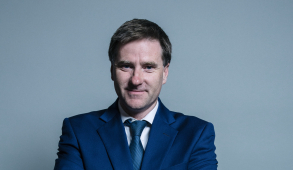News / Government rejects recommendations to improve digital recruitment
In its June report – Digital transformation in the NHS – the Commons Health and Social Care Committee called on the government to implement a new pay framework for DDAT specialists to allow for improved pay measures, including bonuses and ‘capability-based allowances’. This would make NHS DDAT jobs more attractive to skilled employees, who can often find higher wages and better conditions in the private sector.
However, the government rejected this recommendation this week in its response to the committee’s report. Instead, it noted that steps are already being taken to improve recruitment and retention of DDAT specialists. It recognised that there was a problem with current shortages, but said that these were driven by combination of issues that would need a broader response.
Digital transformation is putting bigger demands on IT functions, requiring broader skill sets and more staff. There are shortages in digital professionals, but these are not confined to the NHS, although the government acknowledged that the NHS could struggle to compete with other sectors due to ‘pay points, unclear career progression and a lack of professional structure that supports technical and specialist expertise’. Funding mechanisms for major digital projects – which often use capital resources – introduce a further problem, making it difficult to plan workforce requirements beyond a single financial year and forcing providers to use temporary staffing solutions
The government also highlighted work by NHS England that suggested that part of the issue was down to the 'inflexibility within agenda for change banding’. But it also pointed out that the NHS pay framework already allowed for the use of recruitment and retention premia (RRPs) worth up to 30% of basic pay, although these have to go through an approval process and are not always seen as affordable.
Given this complexity, a wider response was needed rather than a single fix. It said the upcoming National digital workforce plan would set out additional measures and actions that will be taken over the next five years to build the capacity of professional digital, data and technology skills and clinical informatics skills across health and social care.
This will include work with the NHS Staff Council to understand how the pay system can support recruitment and retention of digital roles and introducing reskilling and upskilling initiatives. The government response also highlighted last year’s launch of the DDAT graduate scheme, which has already introduced 60 new DDAT graduates, with a further 180 in the pipeline. An apprenticeship scheme is also bringing in new staff.
Committee chair Steve Brine (pictured) said he was concerned about the government’s rejection of the committee’s suggestion to improve digital recruitment and retention. ‘Ministers blame an “inflexible” pay structure, yet it is in their hands to change it and we would argue is rather self-defeating to leave things as they are in what is an extremely competitive, and global, workforce, he said. ‘Increased digital transformation of NHS services could help tackle backlogs and what is needed is the freedom to recruit and keep the outstanding talent who can bring this about through higher pay and bonuses.’
In response to a further recommendation to invest in the wider workforce’s digital skills, the government highlighted a range of existing programmes that are already in place to meet this goal. This includes the Delivering value with digital technologies programme designed to assist NHS finance professionals in supporting through digital technologies, which is being delivered in partnership with the HFMA.
Related content
HFMA London Branch, SDN and London Finance Academy look forward to welcoming you to the Annual conference 2024
This event will bring together professionals from the finance and technology sectors to explore the power of AI within NHS finance.